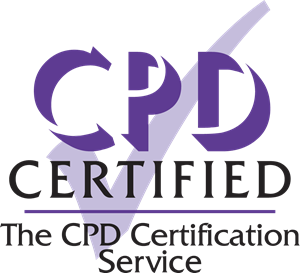Root Cause Analysis Training

- Online (Microsoft Teams)
- +971 562069465
- info@velosiaims.com
-
Velosi is conducting online training for Root Cause Analysis (RCA) Course.
This Root Cause Analysis (RCA) course will teach participants about root cause analysis, which is a method for identifying and evaluating the causes of problems in order to figure out what can be done to solve or prevent these problems. This course which includes lectures, practice, and role-playing, is aimed to provide participants a thorough understanding of how to examine a system and discover the core causes of problems.
Don’t just bandage a problem; solve it once and for all. The core underlying reason for an issue is known as the root cause. This course will teach you how to diagnose an issue, solve it, and prevent it from happening again. Your company will save time, money, and resources as a result of this.
-
By the end of this course, participants will learn to:
- By offering a model for more extensively evaluating problem circumstances, you can improve your problem-solving efficacy.
- Distinguish between analytical and creative thinking, as well as when each is most effective.
- Encourage the capacity to offer problem-solving assistance in circumstances where one is unfamiliar with the method or technology.
- Increase the number of instruments available for problem-solving analysis.
-
Training will be conducted via Microsoft Team Meeting, online. Meeting invites will be shared on the day before the first day of training.
-
4 days at 09:00 AM to 03:00 PM GST (Dubai Time)
-
- Presentation Slides
- Study References
-
- Upon successful completion of training, participants will receive a “Root Cause Analysis (RCA) Training Course Completion” certificate.
-
This course is encouraged for a professional who hopes to learn and perform at a higher level but not limited to:
- This training is appropriate for quality, safety, risk, and reliability managers, process engineers, technicians, operations supervisors and personnel, process owners, occurrence investigators, analysts, maintenance directors, reliability professionals, and anyone else interested in improving their ability to solve recurring problems.
- Machinery and computer equipment, chemical and associated products, fabricated metals, electronics, transportation, and measurement/controlling sectors are all core manufacturing markets.
- Consulting/business services, financial services, wholesale/retail, transportation, utilities, and government are all service markets that could benefit from this course.
-
Group Discount (same company only)
- 15% Discount for groups of 5 or more.
- 10% Discount for groups of 3-4.
Bundle Discount
-
- Sign up for 2 courses and get an extra 10% off
- Sign up for 3 courses and get an extra 15% off
Course Outline
-
Module 1:
- RCA PROBLEMS IN THE REAL WORLD
- Why most issue-solving models don't get to the base of the problem, and what you can do about it
- The importance of separating and integrating analytical and creative thinking
- There is a distinction between content and process thinking.
- STEP 1: DEFINITION OF THE PROBLEM
- How can you make sure you're working on the proper problem?
- Prioritization tools and filters
- Formulating a clear and comprehensive problem statement (includes practice)
- STEP 2: UNDERSTANDING THE PROCESS
- Every problem is a result of a process failure
- How a SIPOC diagram can identify interrelationships and create boundaries
- Drilling down into the right area of the process with flowcharts (includes practice)
- STEP 3: DETERMINING THE POSSIBLE CAUSES
- Five methods for determining possible causes
- There are three ways to choose or eliminate causes.
- On steroids, logic trees as a cause and effect diagram (includes practice)
-
Module 2
- STEP 4: DATA COLLECTION
- Population vs. sampling; sampling options
- Check discrete data collecting sheets, graphs, and tables
- Opinions or less exact facts collected through surveys, interviews, and field observation
- STEP 5: DATA ANALYSIS
- Tools for analyzing discrete data (run charts, histograms, pareto diagram, modified scatter diagram, pivot tables)
- Tools for data of a softer kind (affinity diagram, relationship digraph)
- Tools for integrating data analysis
- CASE STUDY CONSULTATION PRACTICE
- Participants act out a problem and consult with the instructor about it.
- Key learning topics are reviewed.
- HUMAN ERROR AND INCIDENTS/EVENTS
- What is the difference between incident and accident analysis?
- Human error: causes and solutions
- CASE STUDY APPLICATION
- Work on a project that is relevant to the participants' organization.
- SKILLS IN FACILITATION
- Process facilitation vs. expert content
- Roles of facilitators and intervention options
-
Module 3:
- CASE STUDY PRACTICE – Work on a problem that requires integration.
- THE CONTINUATION OF THE PROBLEM PROCESS FOR RESOLVING PROBLEMS
- Finding and evaluating solutions
- The significance of challenges related to organizational transformation management
- Models for analyzing resistance and preparing for change
- Follow-up, standardization, and implementation
- RCA PROJECT MANAGEMENT AND ORGANIZATIONAL ISSUES
- RCA-affecting cognitive biases
- Organizational culture's impact
- Supporting structures/roles for RCA
- MS EXCEL AND STATISTICAL HYPOTHESIS TESTING
- What can the t, F, and ANOVA tests do?
- How to do them in MS Excel?
- Using the chi-square test for count data?
- DRILLING DOWN INTO THE DATA
- Perceiving change as a three-dimensional space
- How should the key components of that variation be sliced?
- Which data comparison tools should you use?
Past Trainings
| From | To | Status | Type |
|---|---|---|---|
| Completed | Training | ||
| September 17, 2022 | October 8, 2022 | Completed | Training |
| August 20, 2022 | September 10, 2022 | Completed | Training |
| July 16, 2022 | August 6, 2022 | Completed | Training |
| April 16, 2022 | May 14, 2022 | Completed | Training |
| March 12, 2022 | April 9, 2022 | Completed | Training |




